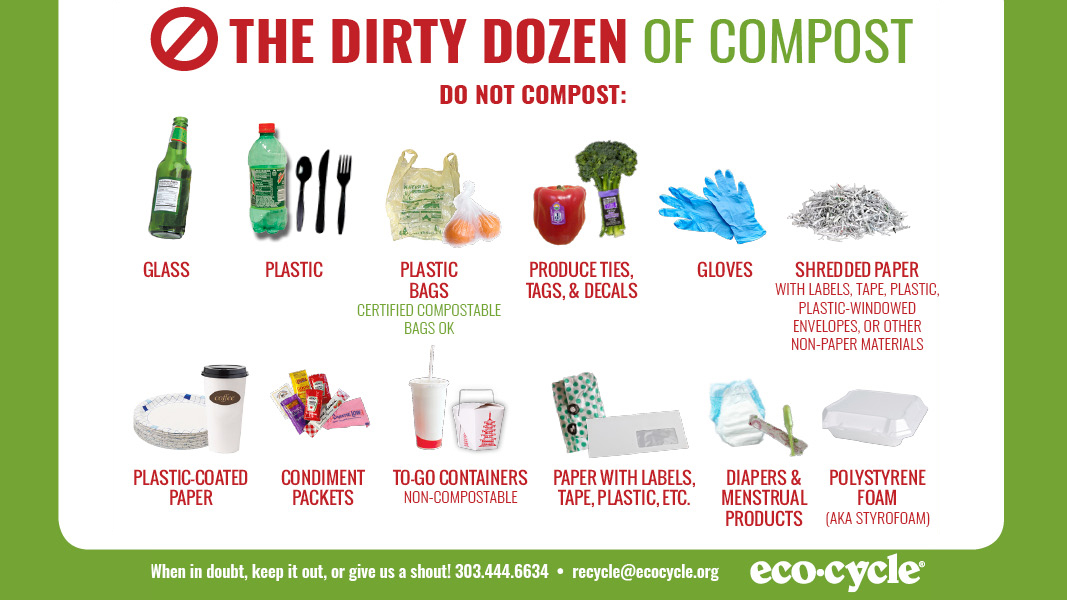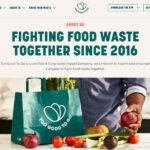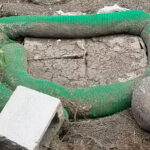Meet the Dirty Dozen of Compost, compiled by Eco-Cycle, a recycling and Zero Waste organization in Boulder, Colorado, and A1-Organics, the regional compost manufacturer based in Eaton that services Colorado’s Front Range communities. Included in the dozen are obviously non-compostable items such as glass, plastics, and metals, along with decals/stickers, twist ties, and rubber bands from produce. A1-Organics was experiencing an ongoing decline in the quality of materials it receives for composting. The company announced to haulers delivering the organics that beginning in August, it is rejecting loads of compostables if a load contains even small amounts of plastic or other non-compostable contaminants. These contaminants are not easily removed from the compost stream and end up in finished compost. Haulers will be charged penalties, and ultimately, the contaminated compost will be landfilled.
“When you put something in the compost cart, keep in mind that it’s going to be turned into an important nutrient for our local soils, applied by farmers and gardeners,” noted Eco-Cycle in its monthly newsletter. “No one wants glass and plastic pieces in their garden beds, so please be careful you don’t put it in the compost cart in the first place! Here’s the good news: composting guidelines are much easier to follow than recycling guidelines. It’s simple: if it rots (think food discards and yard clippings), it can go in. If not (think glass, plastic, tape, stickers, metal), keep it out.”













